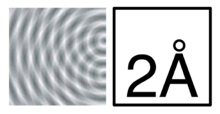500 Words, Day 14
“Let’s start the week positively: What is something you love, and what makes it lovable?”
It sounds silly to say, but every part of me – rational and emotional, forebrain to reptilian brain, mind and body – loves a nap. We're all inexorably attracted to it, and a good one results in a reaction that can only be described as: "endorphins and oxytocin can suck it."
The purely physical level is probably obvious to anyone who's had a good nap. Sometimes we just work or play too hard, or our regular sleep cycles are disrupted. Our limbs feel heavy and weak ("hey, who turned up the gravity in here?"), we're cranky, we get headaches. Even within the context of perfectly adequate sleep, comparing the state of our muscles and posture post-nap reveals how much dynamic or other tension we live in, minute-by-minute; even a good 10-minute nap can release all that.
If you're an athlete, a nap can speed muscle recovery, helping the micro-tears in your muscle repair more rapidly and your glycogen levels ramp back up more efficiently.
A quick nap can also be a good return on investment, time-wise, when it comes to productivity and creativity. We've talked recently about "embodied experience": what we practice, we get better at. But if your body and brain have depleted their reserves (of glycogen, or of attention), trying to soldier through may be counterproductive. You've probably hit this point more than once: the words in a book or on a screen swim, you realize you've been reading the same paragraph over and over, or skipping the last sentences of each for pages, or you don't understand some simple code, or people gently ask if you remember what day it is (and not for the first time). We've also talked about "vigilance decrement" and how taking breaks can increase productivity, but sometimes you're just too far gone.
Then it might be time for a full body and brain reboot. A classmate turned me on to the app Pzizz, and I have to say, it helped me get through grad school. (No promotional consideration was offered.)
It's ironic that as I age closer to the Big Sleep, I more and more value the little ones. But I'm simply not afraid of death; I should have been dead at least twice already. Though this may end up being like Augustine's plea of "dear lord, make me non-existent, but not just yet."
What bothers me more is not leaving at least something better than when I found it. It's like Dan Savage's campfire rule. Maybe I read too many superhero comics, but "make an impact" has never meant an IPO or money, but leaving at least one person better off than if I had never existed.
So I don't feel like taking a break from being conscious is cheating life; it improves my quality of life, and perhaps help me be more creative and giving, which move me towards my goal for what life I have. That's me justifying my love.
And that's 500 words.
